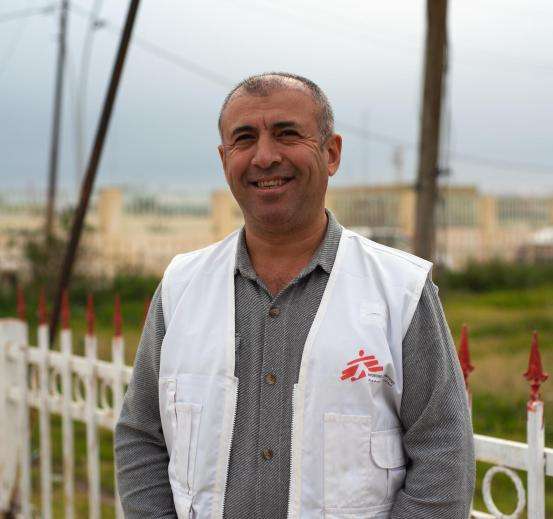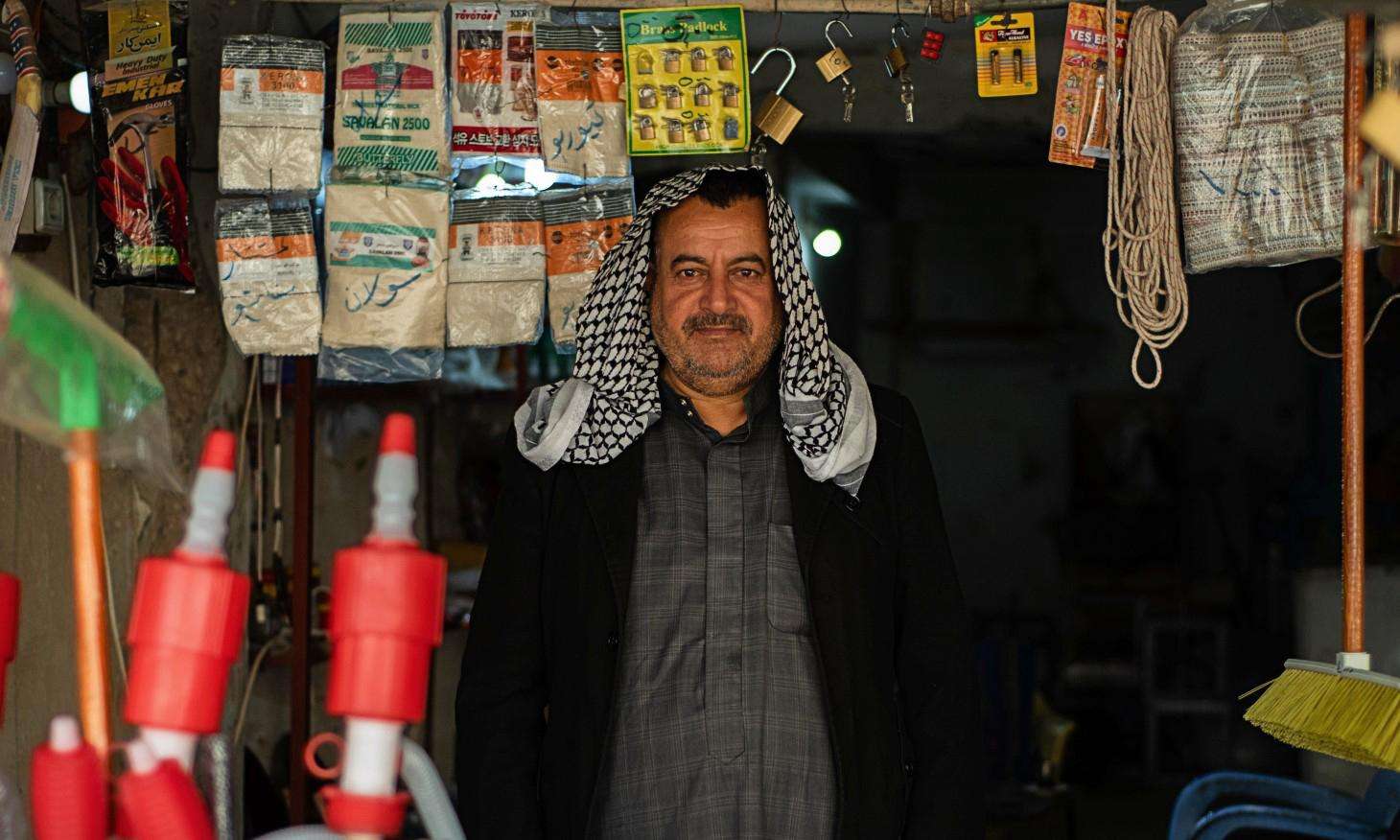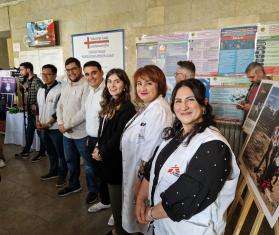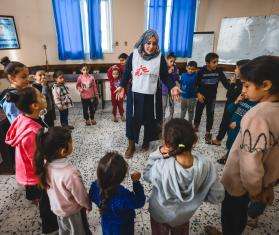“We found everything we owned gone,” said Hashim Abdullah. “No health care services were functioning.”
Abdullah is a former patient at the Doctors Without Borders/Médecins Sans Frontières’ (MSF) clinic in Hawija, Iraq, where he received care for a chronic health condition starting in 2018. He recently visited the clinic on a bright summer morning for his final checkup, before his care would be transferred to the public primary health care center upon MSF’s handover of activities in Hawija district and Al-Abbasi subdistrict to the Directorate of Health after eight years of providing care.
"I have been visiting MSF since I returned from the camp,” he said. “MSF’s free services helped me and many others in the area stay healthy while we rebuilt our lives and homes.”
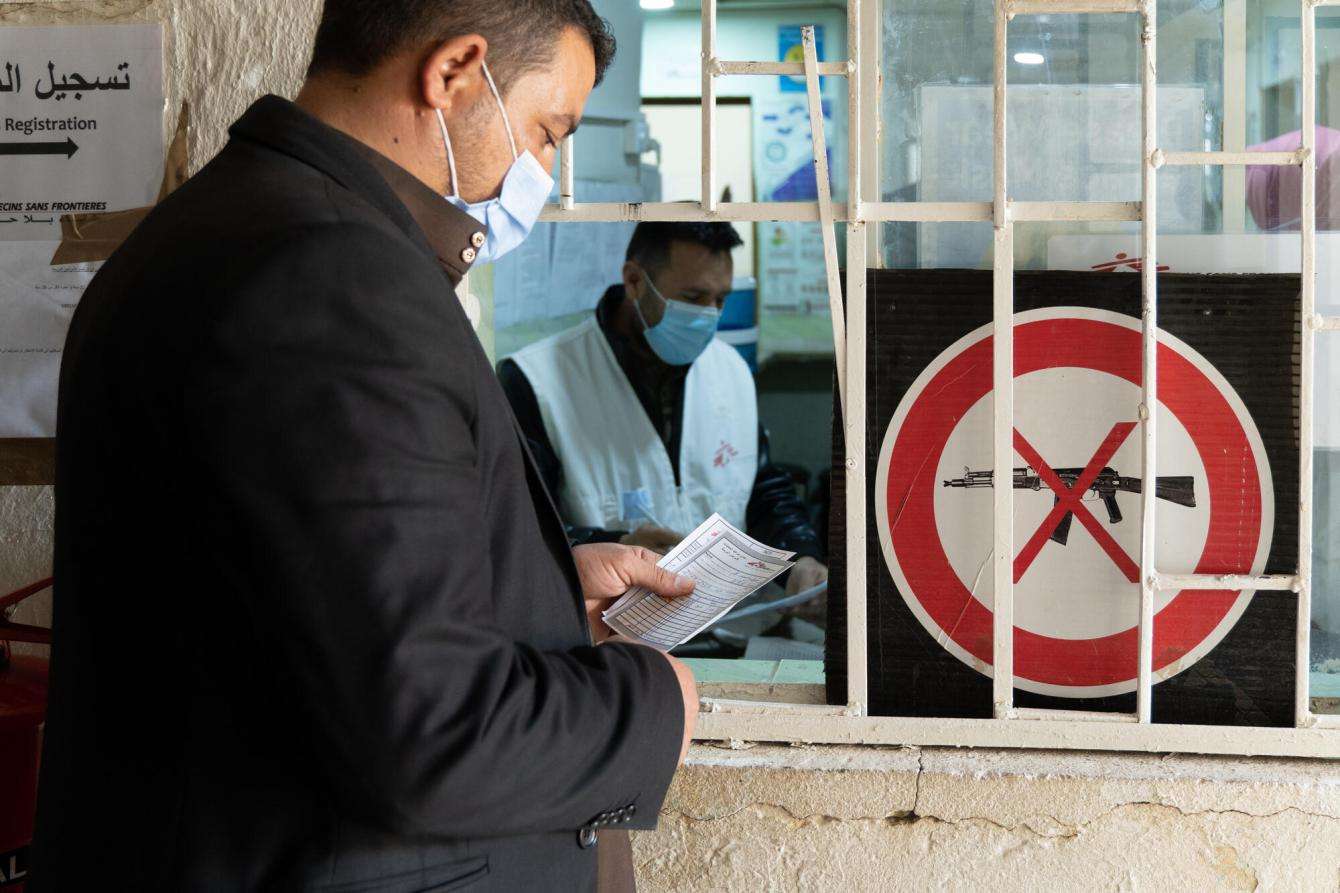
Emergency response to an unfolding crisis
In 2015, Iraq witnessed a humanitarian crisis resulting from the Islamic State’s takeover of large parts of Ninawa, Al-Anbar, Salahaddin, Kirkuk, and Diyala governorates, and the war that followed to restore governmental control. More than 4 million Iraqis are estimated to have been displaced at that time and forced to seek refuge in other areas of Iraq. This came after a massive influx of refugees fleeing the civil war in neighboring Syria that erupted in 2011.
As a result, Iraq was deeply destabilized, and massive resources were allocated to the war effort. At the same time, infrastructure was deteriorating in more than one-third of the country, with immense impact on the health care system and people’s access to health care services.
To respond to the emerging critical needs of displaced communities and others impacted by the war, MSF scaled up its activities in Iraq in areas where displaced people were settling, areas close to the front lines, and in other locations across the country including in Ninawa, Baghdad, Kirkuk, Erbil, Sulaymaniyah, Duhok, Najaf, Karbala, Babil and Al-Anbar.
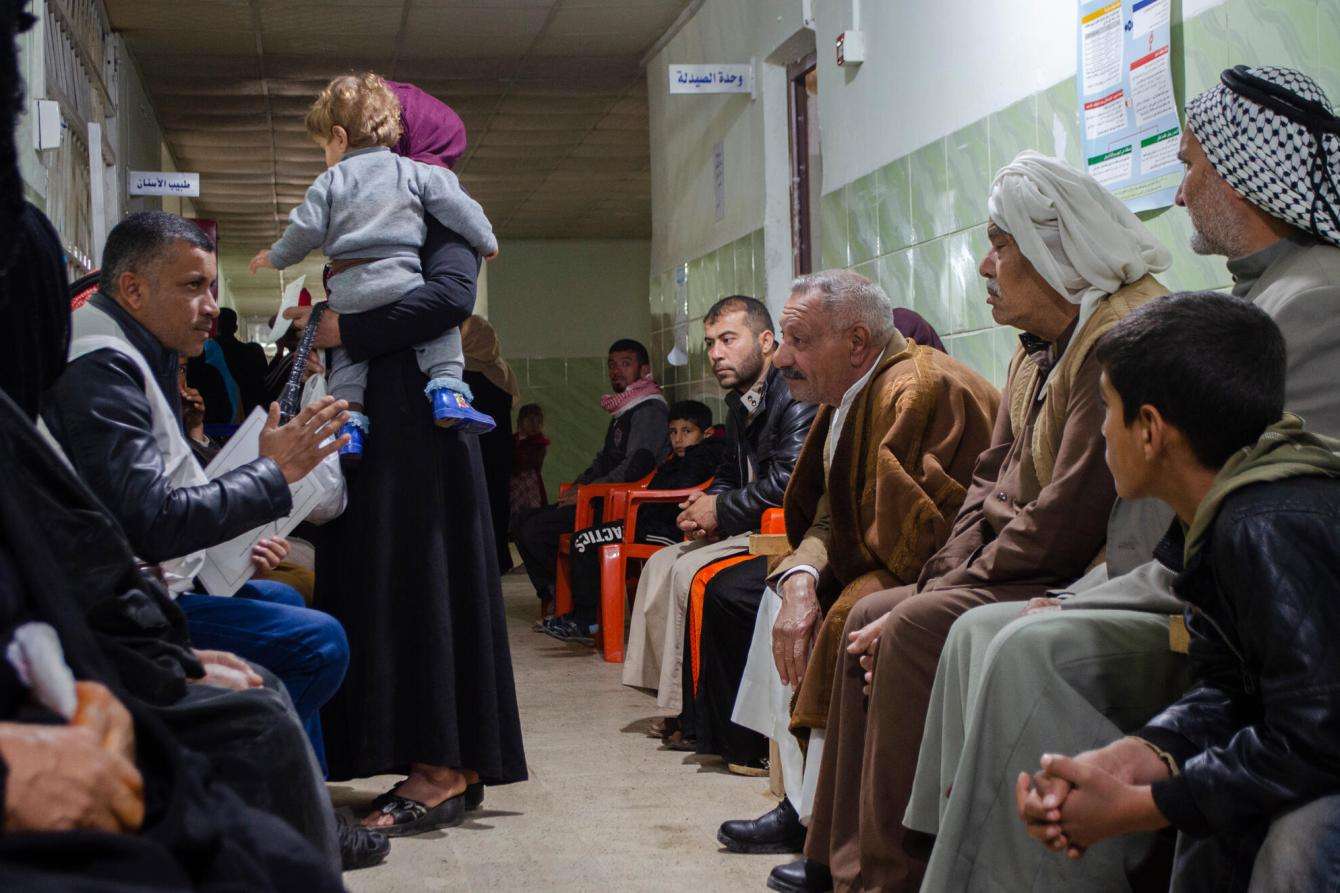
MSF arrives in Hawija
Located at the western end of Kirkuk governorate, Hawija district was part of the one-third of Iraqi territory that fell under the control of the Islamic State in 2014. Over the next three years, thousands of people fled their homes, leaving everything behind. The displacement worsened when armed battles to retake control of the district began in 2017. Hundreds of thousands were displaced from Hawija into camps in Kirkuk and other governorates. The district’s health infrastructure sustained significant damage, not only from the armed battles but also the depletion of resources and services during the time the area was isolated from the rest of the country.
As people fled their homes, MSF set up two mobile clinics, one in Debes and one in Maktab Khalid, where internally displaced people arrived after long journeys to escape Hawija. MSF also established a primary health care facility at Daquq camp, where most of the displaced people eventually settled.
“People arrived in a dire situation both physically and psychologically,” said Aso Khalil, a nurse from Kirkuk who began working with MSF in the camp in January 2017. “Children and the elderly were significantly affected by the shortage of medical care and food before managing to escape.”
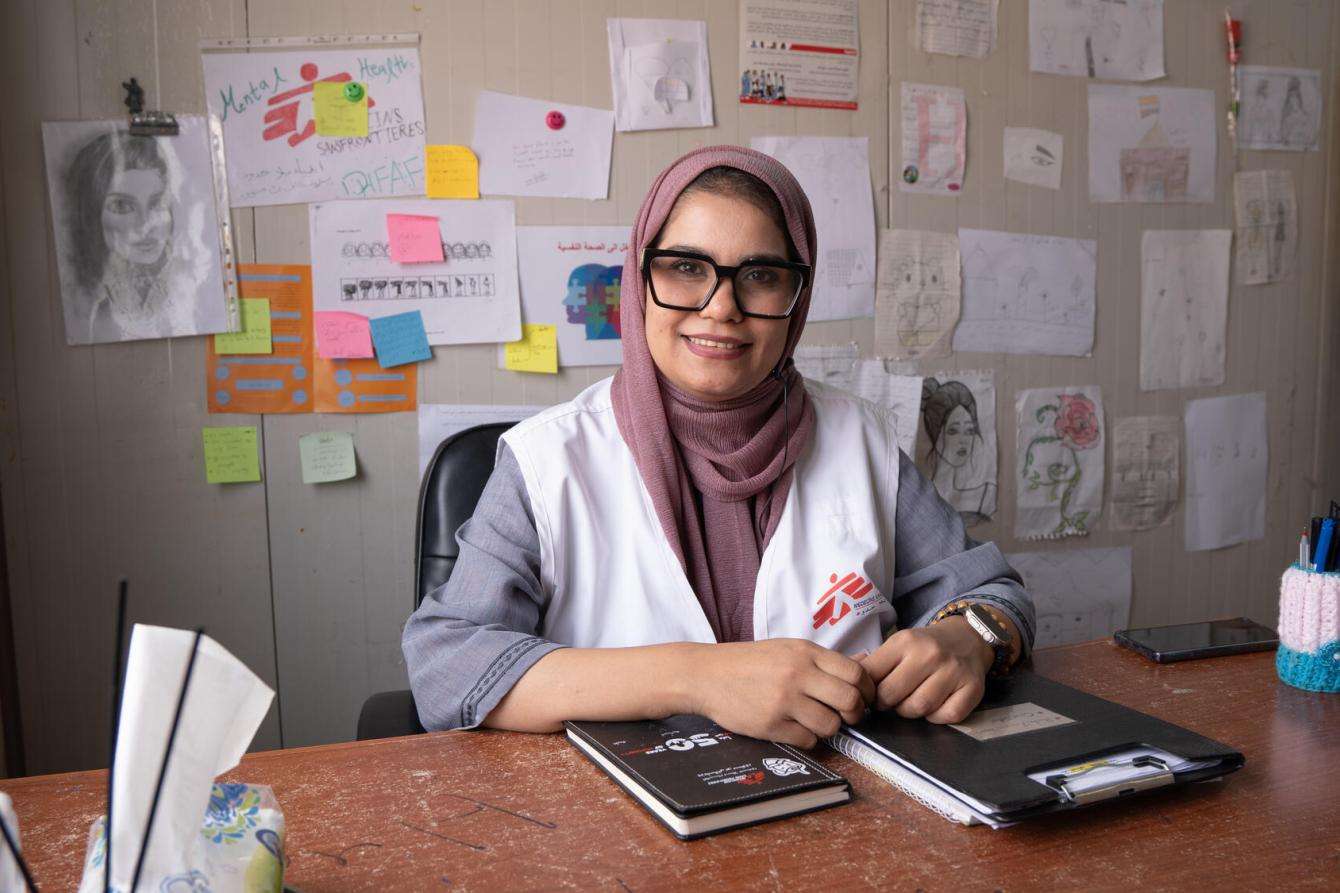
Omar Ali, an MSF health promoter, was living in Hawija before fleeing his beloved home in search of safety. During his escape, he had many encounters with MSF as a displaced person himself. “MSF was there and witnessed everything we went through,” he said. “We found MSF at reception sites when we just managed to cross to safety, then in the camps, where we went to live. When we started to return home after the battles [were over], MSF was there before us to cover the needs of returnees.”
When the fighting ended, almost all basic services were non-existent across Hawija. To assist those who stayed home—and in anticipation of a large wave of returnees—MSF went to Al-Abasi subdistrict.
“Our teams arrived first at Al-Abbasi town and established a temporary primary health care center, as the public one was damaged in the fighting,” said Sellah Moraa, MSF deputy head of mission in Kirkuk. “Shortly after, we extended our activities and started working at the primary health care center of Hawija’s main town.” At both facilities, MSF provided medical care for people affected by non-communicable diseases and provided sexual and reproductive health care, mental health care, and health promotion services.
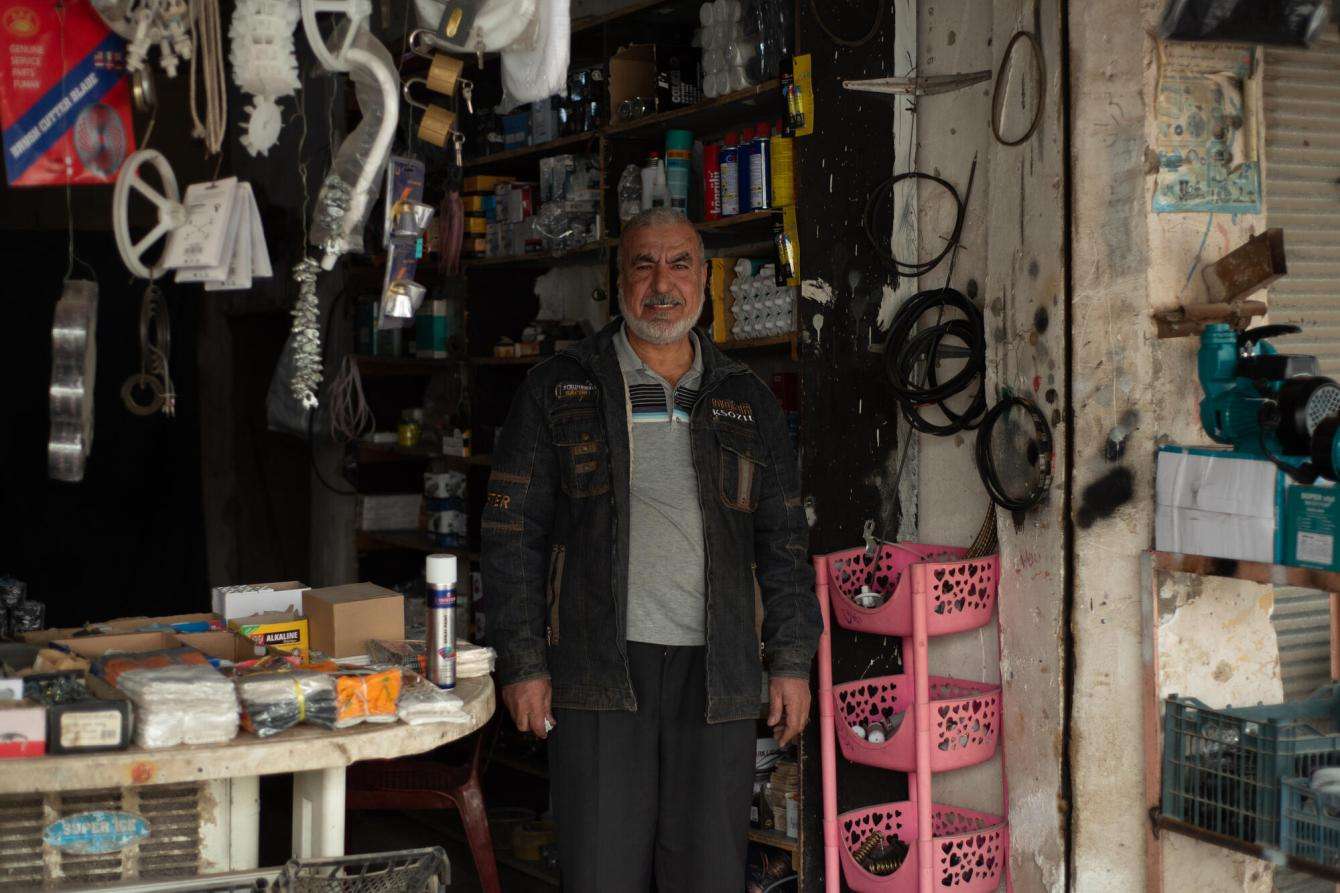
A journey of resilience and recovery
Over the past eight years, Hawija district’s remarkable recovery has become visible in all aspects of life.
“Hawija was a disaster area back in 2017, especially after a massive explosion in the industrial zone following an airstrike,” said Ahmed Sideeq, a Hawija resident who chose to stay home in fear of becoming stranded and facing worse living conditions in displacement camps. “We barely had enough food to survive. For instance, one kilogram of sugar [about two pounds] reached $100 USD while no one had any income in the first place. Words cannot describe those days. But today we are in much better condition. Thankfully all aspects of life are back to normal.”
Today, Hawija’s markets and famous farms are pulsing with life again and the district’s infrastructure is in a much better condition. The health care system in the district has seen some recovery; Hawija General Hospital and its primary health care center are functional again, and the primary health care center in Al-Abbasi has been reconstructed and is running.
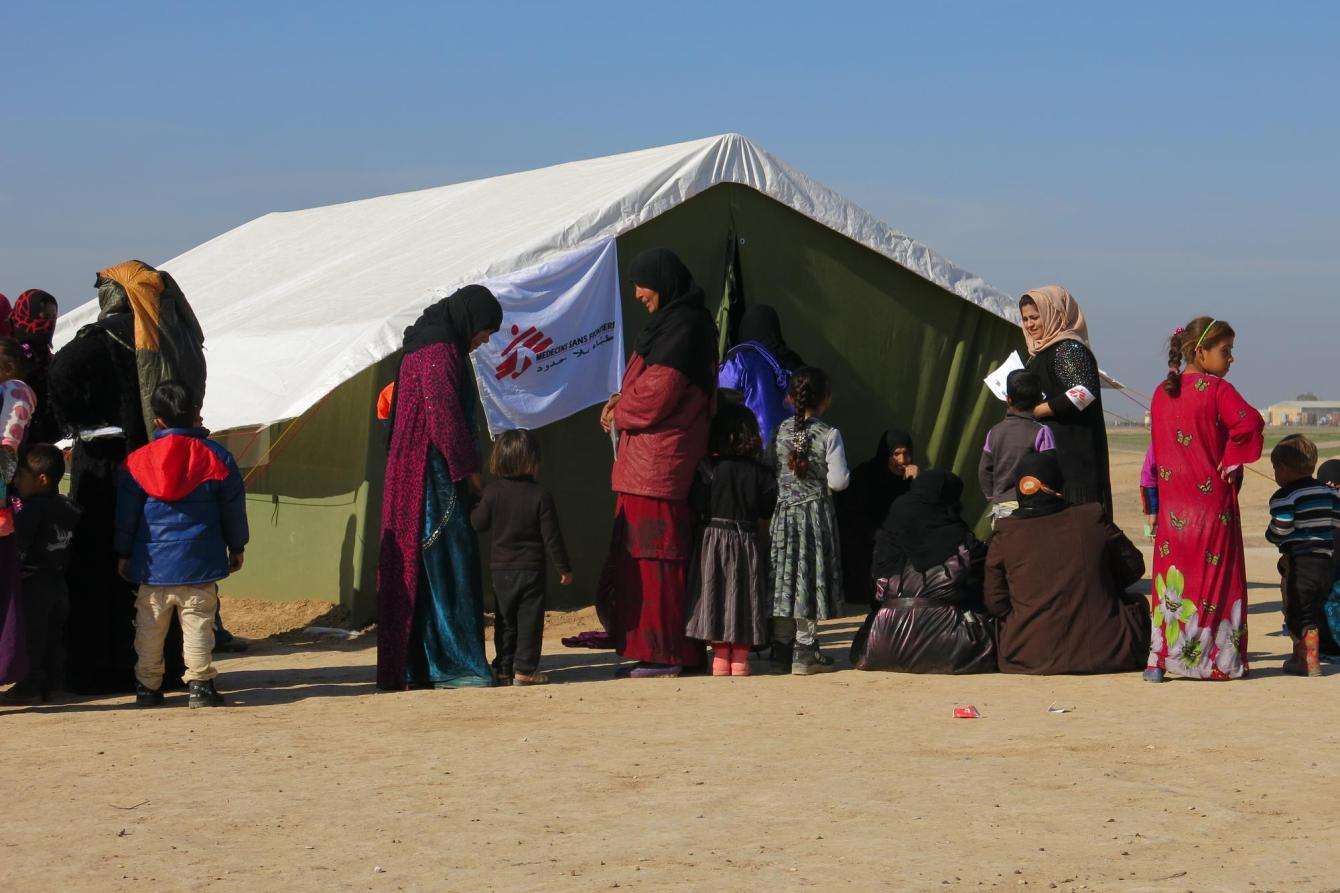
“When I first came to Hawija and Al-Abbasi after the war, they felt like ghost towns,” said Narmeen Abbas, MSF health promotion manager from Kirkuk. “Today I see that schools, health care facilities, markets, and life in general are all back to normal. And this change makes me very happy.”
MSF’s activities in Hawija took a holistic approach to the treatment of chronic diseases, prioritizing mental health care, health promotion, and educating the community about lifestyle risk factors. In an area where mental health experts are scarce, this has meant investing in coaching local staff to deliver these services to a community that has experienced a crisis.
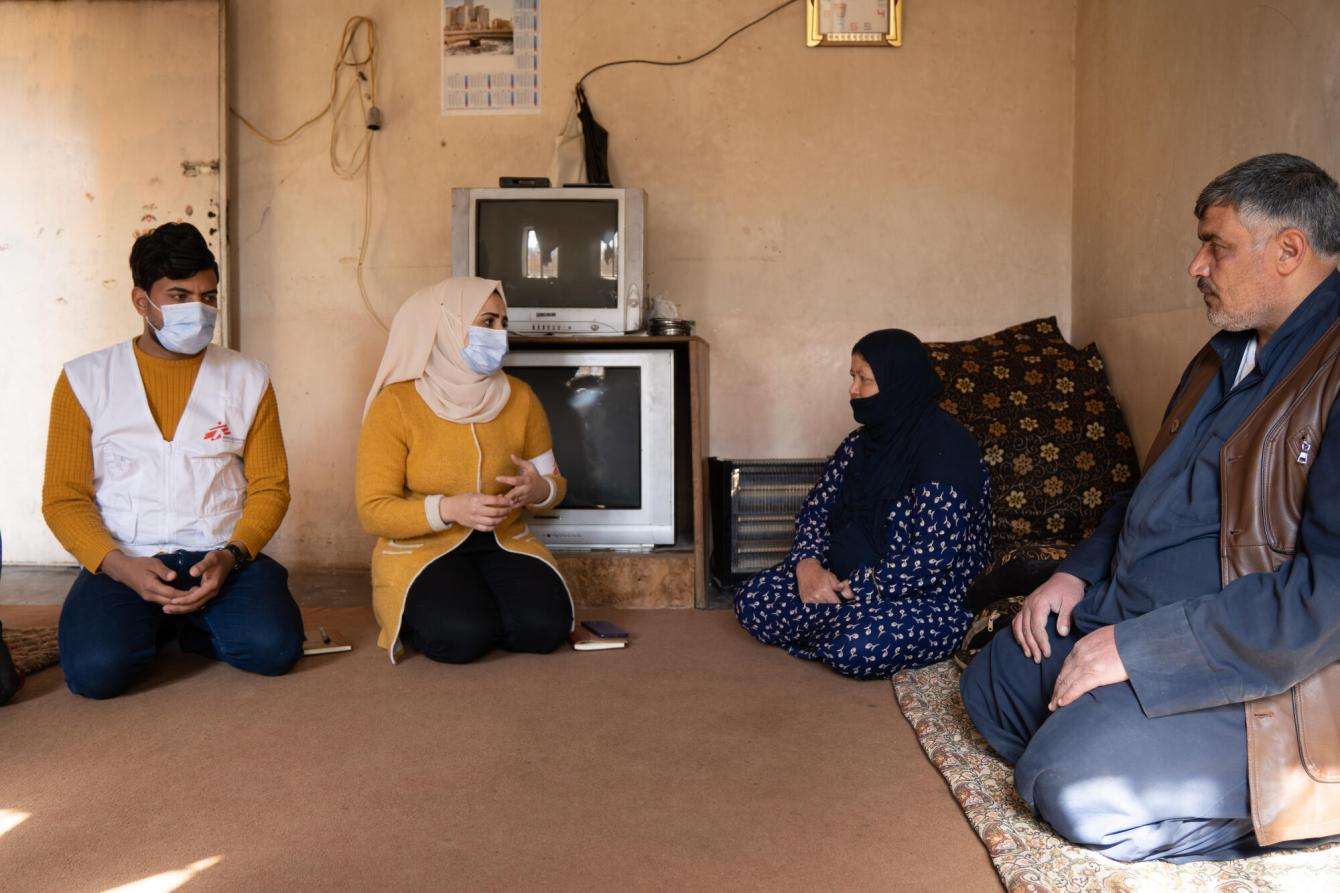
Building long-lasting bonds and capacity to continue
Over eight years in Hawija, MSF worked closely with health care authorities to help restore access to basic health services. In addition to medical care, MSF supported the Directorate of Health with infrastructure rehabilitation at Hawija General Hospital and provided essential training and coaching to health care providers.
“While it’s time for us to end our activities as an emergency medical organization, we believe that this is not the end,” said Sellah. “Our work here wouldn’t have been possible without the valuable efforts of our team members who are from Kirkuk or Hawija itself. While we leave, we are confident in the solid skills that will stay here within the community and the health care system. [The people we reached] will continue sharing their skills and hard work with their communities even after we leave.”
Similarly, Aso said, “I am proud of the work I did with MSF, and I am grateful for having the chance to extend a helping hand to people who were going through dire conditions. I have built very strong and long-lasting relations with colleagues I have met here. And I am sure this bond between us will continue. We have been through very sad and very happy moments together and today we are satisfied with what we did here.”
By the numbers
- 29,221 psychosocial sessions
- 18,137 individual consultations
- 161 Group consultation sessions
- 3,119 group and individual sessions
- 2,443 sessions in the community
- 101,126 sessions in health facilities
- 144,562 clinical consultations for non-communicable diseases
- 32,973 outpatient consultations
- 6,568 prenatal consultation visits
- 1,769 postnatal consultation visits
- 11,404 family planning consultations
- 5,943 gynecology consultations
- 10,443 maternity deliveries
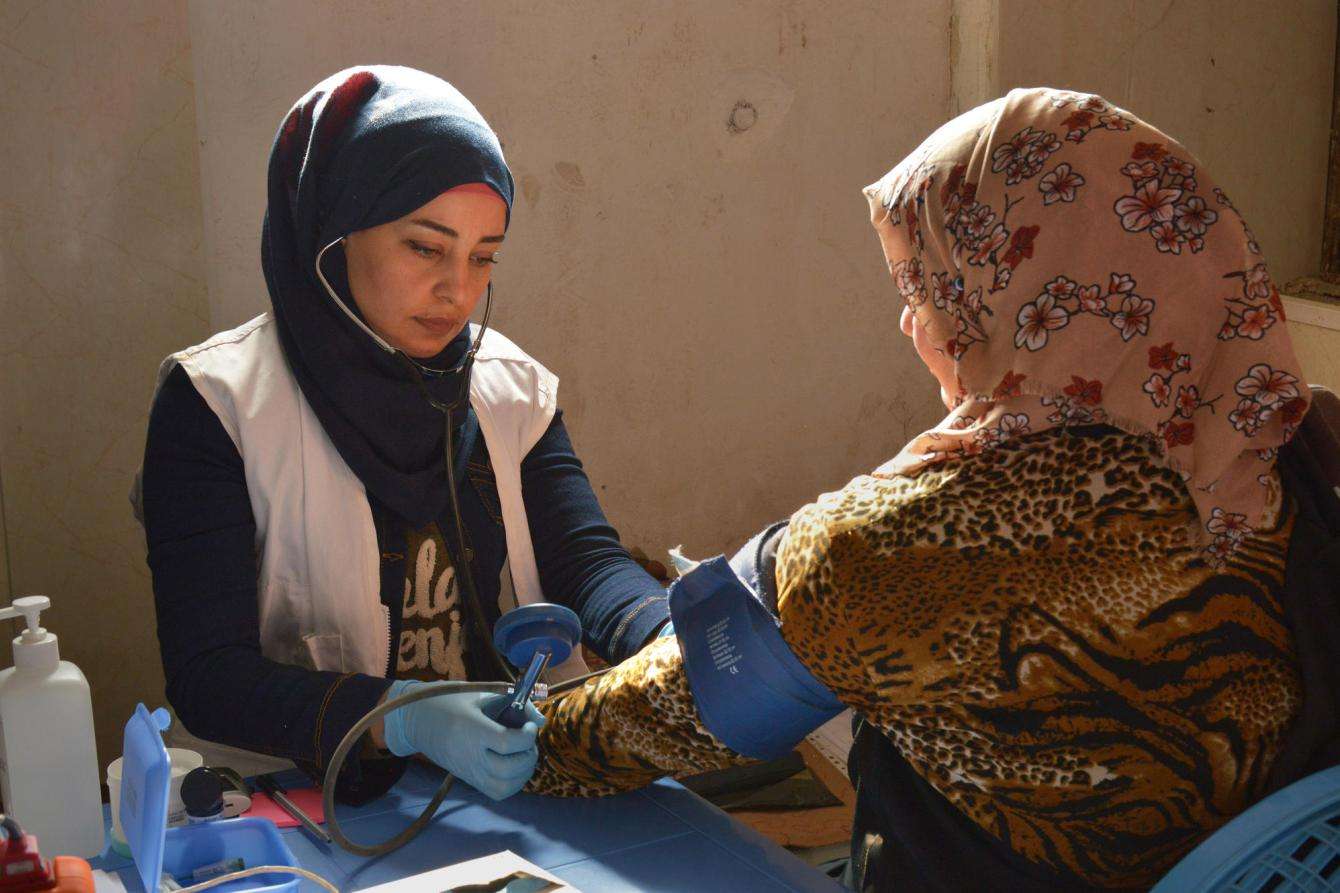
Staff and patients reflect on eight years in Kirkuk
MSF patient in Hawija
Anwar Shukr Mahmoud
“I am from Hawija. I was born and raised here. I started visiting the MSF clinic in Hawija around the beginning of 2020. I had hypertension and it was not under control. At the clinic, I received regular checkups and medications, and the services were very good and comprehensive. Everything was free of charge, which was a great help for us at a critical time. It was the time when the district lacked everything, and our lives were very hard. I continued my treatment with MSF until my condition became stable last year. Then they referred me to the public health care facility in Hawija to continue my treatment there, as MSF was focusing on the unstable patients.
I heard about the MSF clinic from the community here. Almost every family has a patient with a chronic condition, so the news about the presence of MSF spread very quickly and widely. It had a good reputation for high-quality care and medications and after I started visiting them, I could see that the reputation was correct ...
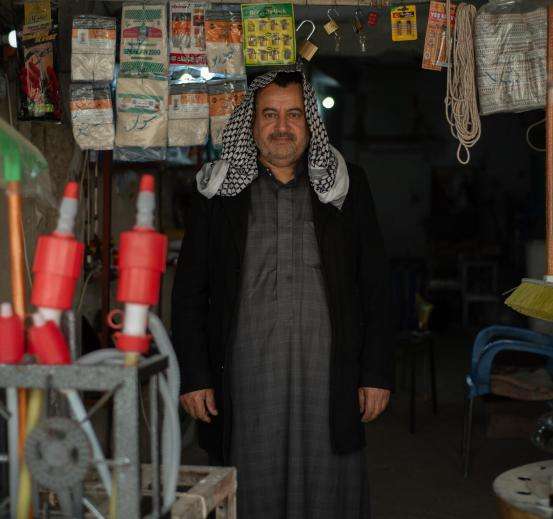
MSF health promotion manager
Narmeen Abbas
“I started working with MSF in 2017 in displacement camps, like Daquq and Laylan, and on the peripheries of Hawija district, where we provided care for those who managed to escape their homes while the battles to take back Hawija were still ongoing. We worked on two fronts. Our mobile clinic on the outskirts of Hawija received those who had just managed to escape and provided them with first aid and basic medical care as many had not [received] medical attention for weeks or months. Then at the camps where they eventually settled, we continued providing them the care they needed for their health.
When the battles ended, we expanded our activities to Al-Abbasi and Hawija towns as people started returning to find no services functioning at all.
Our services here included medical care for people with chronic diseases, maternity care, mental health care, and health promotion ...
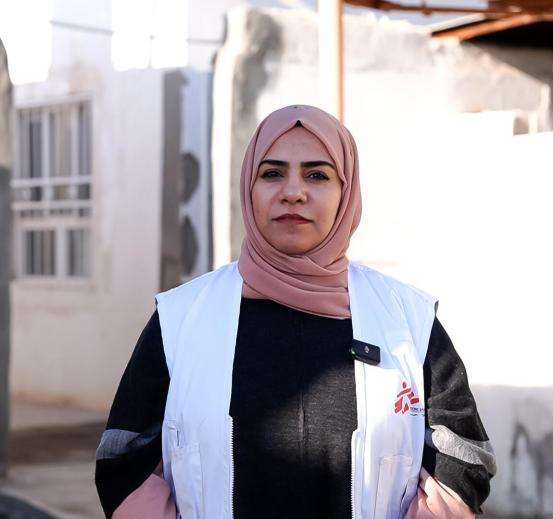
MSF health promoter
Wazira Ahmed Muhammad
“Conditions were difficult when we left our home in Hawija, where we had lived since the 1990s. We had to take a difficult journey from one village to the other until we reached the Debaga camps to the north of Kirkuk within the Erbil governorate, but all our relatives were in the Daquq camp, and we were not able to join them for a year and a half as we lacked the required permissions to move there. Eventually, we managed to get the permissions and arrived at Daquq, where I joined MSF.
At first, people did not trust us. They thought that our house visits as health promoters were just to waste their time. They were saying that they did not need health promotion; instead, they needed food and income to be able to improve their lives. We understood their conditions and kept trying to connect with the camp residents. When they started to understand the work of MSF, their trust began to grow, and we built strong relationships with the community of Hawija ...
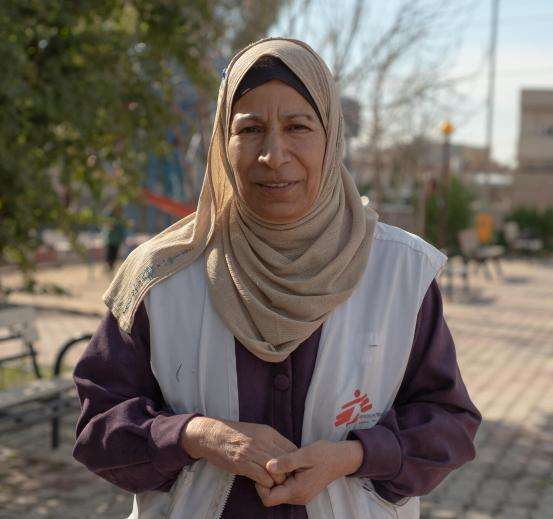
Community mental health worker
Ahmed Aqeed
“Our journey in Hawija began with significant challenges, particularly in garnering societal acceptance for mental health services and combating the stigma around it. People were not used to seeking this kind of services and they felt awkward to attend them. However, with perseverance and dedication, acceptance gradually appeared, and today, people willingly seek psychological assistance, leading to a noticeable improvement in their psychological wellbeing ...
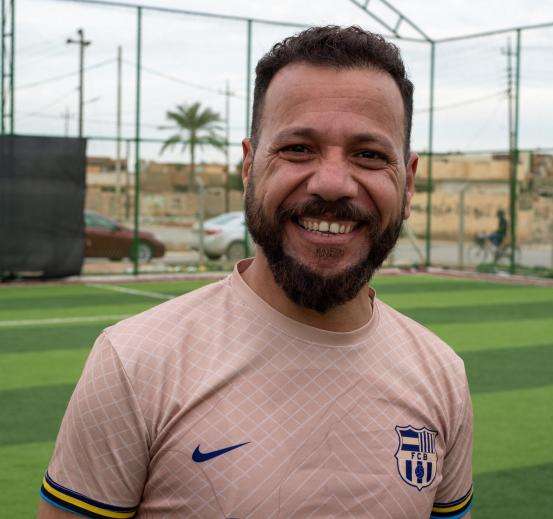
MSF nurse supervisor
Aso Khalil
“During my work with MSF, I encountered some of the most challenging cases of my career. I remember one elderly man in his sixties who would break down in tears when speaking about his two sons lost in the war, and the abduction of his daughter, her fate still unknown. These stories were difficult to hear, and despite that, many of these people felt ashamed to seek mental health care as they were not used to it before.
I found immense fulfillment in my work, and I am grateful to be able to help people who were in desperate need of medical care. Patients would often express their gratitude to me, and their progress gave me a sense of purpose. Being part of MSF, I have come to understand the importance of our reputation in the community. People trust us to provide the best medical and mental health services, and it's a responsibility I take to heart ...
